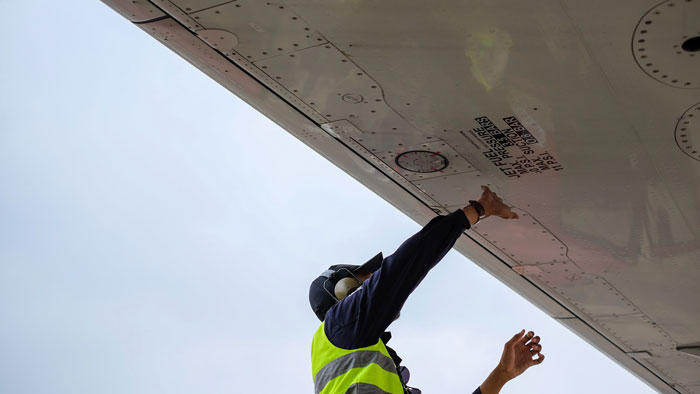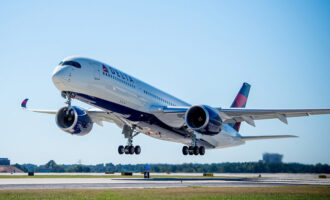
ASTM approves sixth pathway for sustainable aviation fuel
ASTM International has approved and published a sixth pathway for the production of sustainable aviation fuel (SAF). The latest annex to ASTM D7566, Standard Specification for Aviation Turbine Fuel Containing Synthesized Hydrocarbons, establishes criteria for the production and use of catalytic hydrothermolysis jet fuel (CHJ), a type of synthetic kerosene.
The standard provides that CHJ fuel, which was developed by Applied Research Associates (ARA), may be blended at up to 50% by volume with conventional jet fuel.
The specification was approved and published with support from the Commercial Aviation Alternative Fuels Initiative (CAAFI).
In the CHJ process (also called hydrothermal liquefaction), clean free fatty acid (FFA) oil from the processing of waste oils or energy oils is combined with preheated feed water and then passed to the CH reactor. There, under very high temperature and pressure conditions, a single phase is formed consisting of FFA and supercritical water (SCW) wherein the FFAs are cracked, isomerized, and cyclized into paraffin, isoparaffin, cycloparaffin, and aromatic compounds.
The CH crude oil produced by the CH conversion process contains thousands of isomers distributed over the entire boiling range of jet and diesel fuels.
The treated products, ranging from 6–28 carbon numbers, contain n-alkanes, iso-alkanes, cyclo-alkanes, and aromatics, require a fractionation step for separation to naphtha, jet fuel, and diesel fuel.
Research has shown that through the CH process, biojet fuels can be produced from a variety of triglyceride-based feedstocks such as soybean oil, jatropha oil, camelina oil, carinata oil, and tung oil.
“The development and deployment of sustainable aviation fuels is a critical part of the U.S. airline industry’s continuing commitment to reducing our carbon emissions,” said Nancy Young, A4A vice president, Environmental Affairs. “The new standard provides another important pathway for SAF production. The more pathways we have, the more SAF that can be produced and used to sustainably power our planes.”
Airlines for America (A4A) advocates on behalf of its members to shape crucial policies and measures that promote safety, security and a healthy U.S. airline industry.









